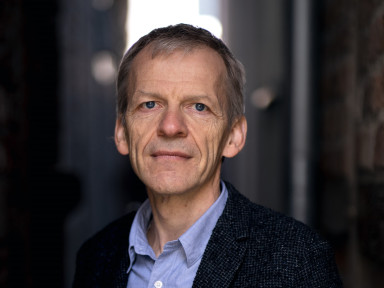04 Jul, 2023, 09:15Lauenburg
Dr. habil. Joachim Thiel (HCU Hamburg)
Future-making through projects?

Image © Joachim Thiel.
Abstract
Projects, in a way, create the powerful illusion of a manageable future. As a temporary venture, each project cuts a certain period out of the otherwise continuous time flow. Within this period, time can be imagined as linear, and hence as predictable and plannable. Projects, then, engender future-oriented agency: They make actors act towards the future; at the same time, they convey to these actors the impression that they can control their actions.
And yet, there are two fundamental caveats that call this future-making power of projects into question. First, an imagined linearity does not eliminate the varying and often unforeseeable process dynamics inherent in projects. Second, projects still are just episodes within longer-term processes. The future, then, is more than the project period.
The lecture addresses these two sources of uncertainty that limit the future-oriented agency of projects: process dynamics and long-term processes. More specifically, I seek to frame this uncertainty as ignorance about the future and look into (1) the ways in which project participants seek to cope with this ignorance; and (2) the trajectories through which the ways of coping with ignorance travel between different projects. In regard to (1) I present three modes – abolish, accept, apply; to (2) I identify three trajectories – projects, careers, fields.
I illustrate this analytical framework by presenting findings from research into large-scale construction projects in Germany. The research outcomes reveal a strong mismatch between the field trajectory, on the one hand, and the other trajectories, on the other. While field discussions usually focus on ways of abolishing ignorance, actual project practitioners emphasize the contingencies of their work and therefore highlight more pragmatic ways of dealing with things they do not and cannot know.
About the lecturer
Joachim Thiel is a senior lecturer with a habilitation in socio-economic urban and regional research and member of the research group on urban and regional economics at HCU. He has done extensive research work on creative labour and creative industries in the urban economy; on large-scale construction and urban development projects; and on urban digitalization processes. Joachim is currently acting as deputy spokesperson of the research training group ‘Urban future-making’. He is a trained spatial planner from the University of Dortmund, with a PhD in urban and regional economics obtained at the Hamburg University of Technology. Prior to his present position, Joachim worked as a strategy officer in the presidential office of HCU for 4 years.
More information
https://www.hcu-hamburg.de/gernot-grabher/people/dr-joachim-thiel